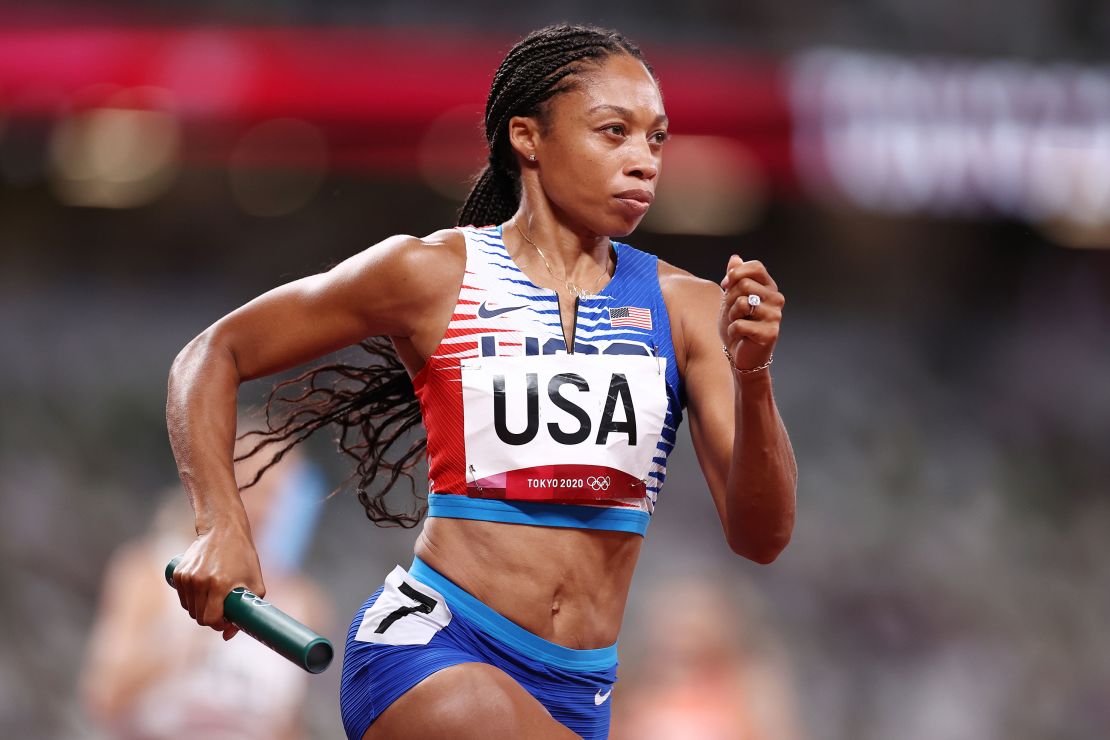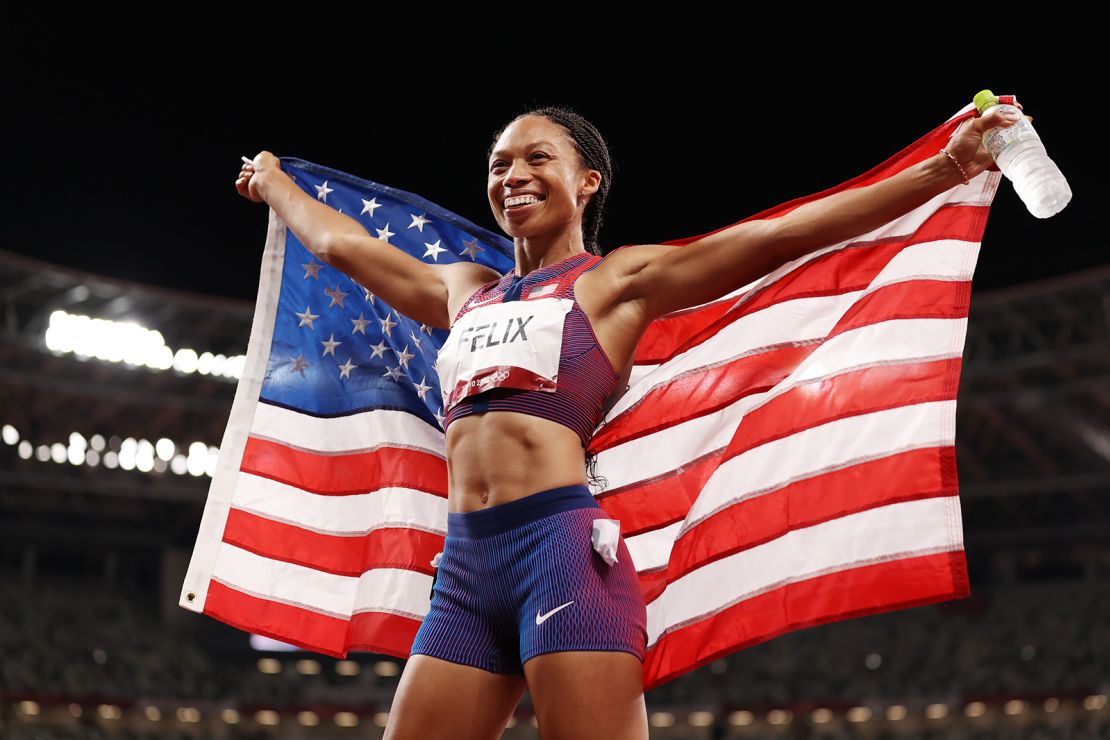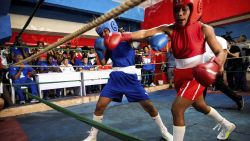After becoming the most decorated US track and field athlete in Olympics history, Allyson Felix has cemented her legacy on the track.
But the 35-year-old is not just content with excelling in her sport and wants to use her platform for social good.
She recently partnered with Anthem, an insurance company that has conducted a study into the social drivers that affect people’s health in the US.
The campaign hopes to trigger a national conversation about well-being and improve people’s awareness of the things in life that can have a negative impact on one’s health.
“It’s been really interesting to me that there are these social drivers affecting our health and there are things that we don’t really necessarily associate with health,” she told CNN Sport’s Amanda Davies.
“So transportation and air quality and some of these things that you’re just born into.
“It’s really about taking a holistic approach to our health and, you know, figuring out how we spark conversations to create change for this.”
The study, called Driving our Health, also found racial discrepancies when it came to healthcare statistics, with people of color saying they were more negatively affected by social drivers of health.
Felix wants to raise awareness in those communities, something she became passionate about after the birth of her daughter three years ago.
In November 2018, the American struggled with preeclampsia and had an emergency C-section at 32 weeks to deliver her daughter.
“Obviously being an athlete and being healthy, living a healthy lifestyle, I never expected to find myself in that position,” she added.
“And so to be there and to be, you know, so scared and really not feeling like I was educated about the circumstances, it’s really opened my eyes to kind of the whole new world of health.
“And really not taking my own health for granted and really wanting to raise awareness around some of these issues.”

Finding her voice
Felix says that becoming a mother helped her find her own voice, and she has been one of the many athletes to speak out against injustice in recent years, notably for women’s rights and for racial equality.
She says she felt compelled to speak out after the death of George Floyd in 2020 and has continued to use her platform to fight for change.
“I think it can get frustrating sometimes, taking on some of the same issues,” she said, adding that she was hopeful that she could continue to make a difference.
“But at the same time, I feel it’s such a privilege to be able to speak on behalf of others and to really try to fight and to push for certain things.
“It’s been a process to get to this point and I’ve really grown and come into my own.
“I think it was my own personal experiences that really allowed me to say: ‘No, I need to come forward and I need to speak on things that are affecting not only myself, but other women and other people within my community.’”

Biles and Osaka
While it took Felix until later in her career to speak out, she says she’s been proud to watch younger superstars take control of the public narrative.
She is particularly inspired by the likes of Simone Biles and Naomi Osaka, who both bucked the trend by addressing their mental health struggles this year.
In many ways, Tokyo 2020 will be remembered as a cornerstone for athletes speaking openly about the pressures of competition and Felix says it’s about time.
“I think for a long time, you know, athletes have just been seen as invincible, and we’re no different than anybody else and we go through struggles and challenges,” she said, before explaining how she deals with the pressure.
“I think really making it a priority, making our mental health a priority and understanding when you’re not OK and what are the steps and what works for you.
“I know when I have to lean into my support system, when I need to step away.
“Kind of what helps me to be able to thrive and taking that time and taking that space for myself.”
‘A real representation for women’
Felix, however, enjoyed yet more Olympic success in Japan.
She added two medals to her haul – including a gold in the women’s 400m sprint relay – but such success didn’t always look likely.
In addition to the complications of returning to the sport with a young daughter, Felix was also forced to adapt her training schedule, practicing on empty soccer fields and beaches during the initial stages of the pandemic in 2020.
Her husband, Kenneth Ferguson, took leave from his job at Chrysler and the family moved to Los Angeles from Michigan so Felix could train with her coach, Bob Kersee, ahead of competition.
Despite all the sacrifice, Felix says it was worth it.
“There were so many amazing moments, and I also felt like a real representation for women and for people who had been told that their journeys and their stories were over,” she said about what will be her last Olympic Games.
“And so I knew that I would have mixed emotions. You know, it’s been a part of my life for so long, but at the same time, there was so much joy and fulfillment in those moments.”




















